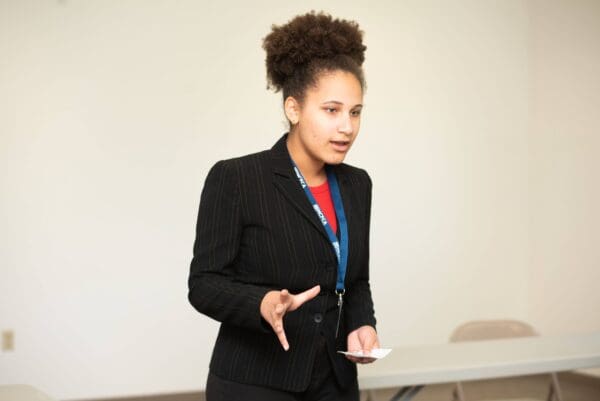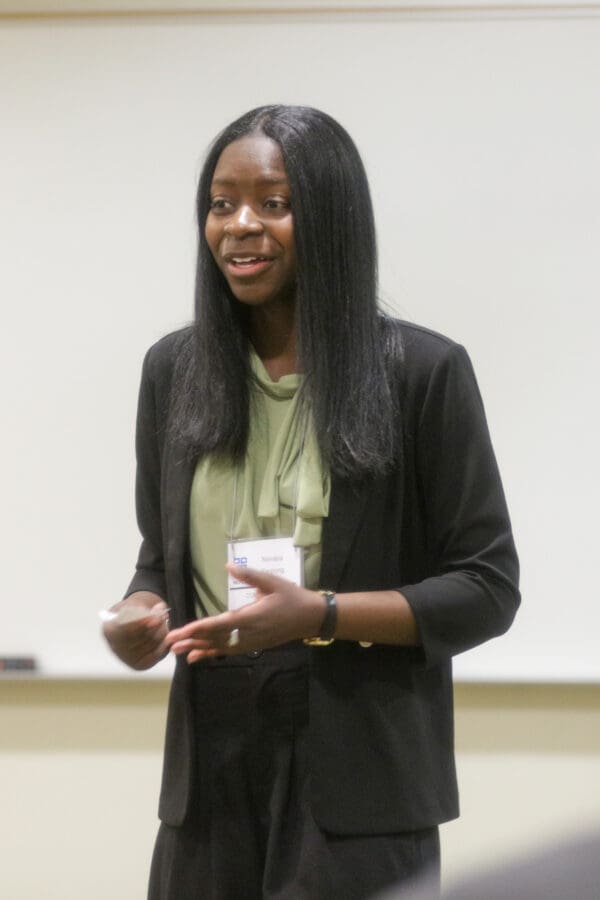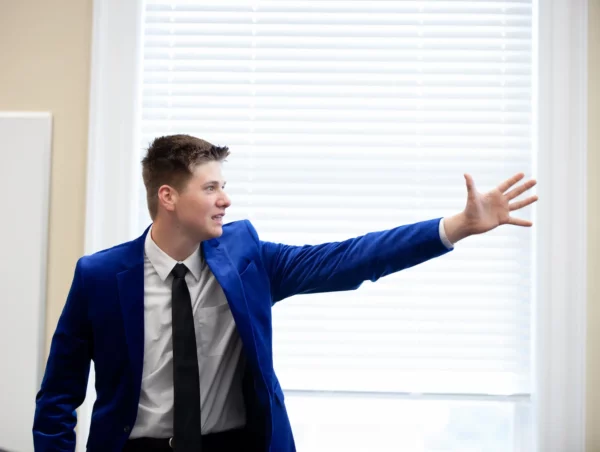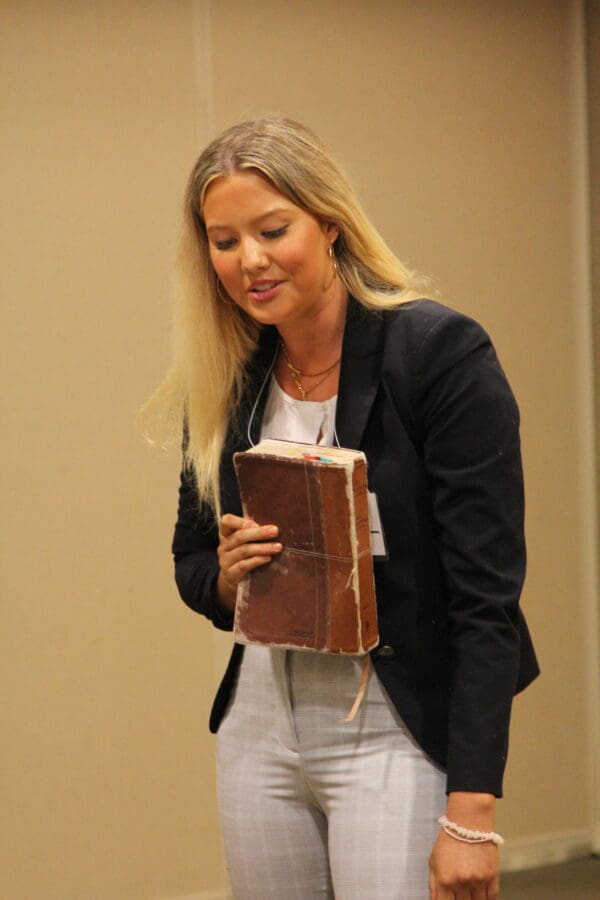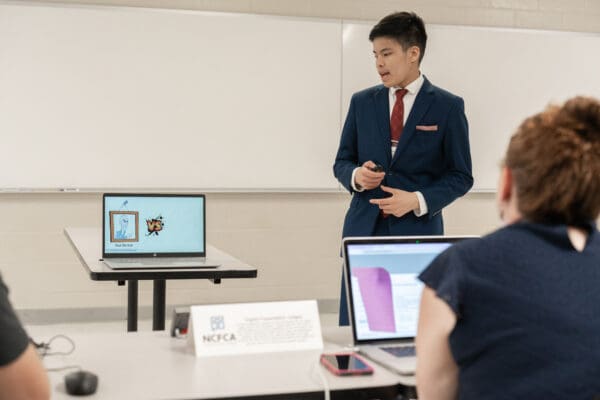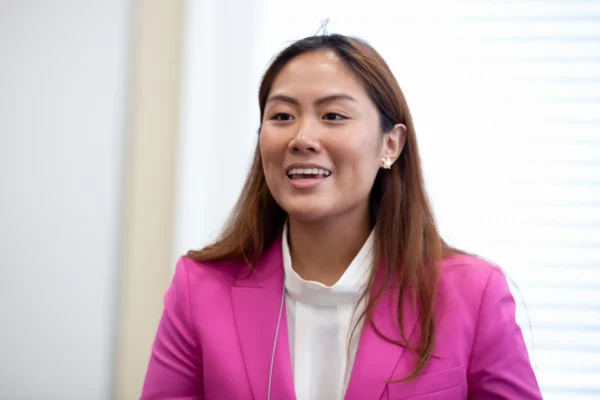Master the Art of Public Speaking
NCFCA's speech program empowers young people to become confident, articulate communicators. Our constructive community will help you find your passion, develop your skills, and captivate your audience.
10 Event Choices in 3 Categories
speech programs
Each event challenges students to find thier voice and develop skills in a different way.
Flip through the category tabs below to see all of our events and learn how they work.
Think on Your Feet
Test your mental agility and quick thinking with our limited preparation speech events. Draw a topic, gather your thoughts, and deliver a compelling speech under pressure.

Apologetics
Presents a well-reasoned defense and thoughtful application of basic tenets of the Christian faith.

Extemporaneous
Analyzes news and other sources to prepare an evidence-based speech on a current-events topic.

Impromptu
Presents a unique and meaningful speech on a topic drawn from abstract words, phrases, quotations, or table topics.
Bring Characters to Life
Immerse yourself in the world of storytelling through interpretation. Explore diverse literary works and develop compelling performances that captivate your audience.

Duo
Explores a published literature selection and is presented by a team of two competitors.

Open
Explores a published literature selection and is presented by one competitor.

Biblical Presentation
An interpretation speech that explores one or two selections of Scripture using visual aid(s).

Oratorical Thematic
Creatively explores, develops, and analyzes one or more published speeches, developing a theme through analysis and/or expression.
Master the Art of Delivery
Showcase your ability to craft and deliver a polished speech with our platform speaking events. Develop your presentation skills and captivate your audience.

Digital Presentation
Informs or persuades the audience, accompanied by digital visual aids.

Informative
Explains a significant topic.

Persuasive
Influences the audience to consider a particular point of view or course of action.
Hear From Our Students
testimonials
Discover the transformative power of NCFCA through the inspiring stories of our students. Learn how our program has helped them build confidence, develop critical thinking skills, and find their voice.
View More ReviewsImpressed Parent
Playback Speed Quality LoopCaptions Accessibility AnnouncementsI was so impressed with the kids presenting that I came back to my wife. I said to her that we are going to do this. Not sure how we're going to do it, but we're going to try to go to every tournament because I'm so impressed with these kids.
Raul M.
Parent
My Favorite Event!
Playback Speed Quality LoopCaptions Accessibility AnnouncementsI started with Impromptu speaking, and I did not love it. It was difficult for me to effectively manage my time, but I stuck with it. My mom encouraged me to keep going, and I could say confidently by my last year, it was my favorite event.
Lucy C.
Student
The Power of Feedback
Playback Speed Quality LoopCaptions Accessibility AnnouncementsStudents get so much feedback and they learn how to humbly accept it, to appreciate it.
Melinda S.
Parent
Learn Discernment Through Competitive Debate
Playback Speed Quality LoopCaptions Accessibility AnnouncementsI think debate particularly gives them a tremendous amount of discernment, the ability to weigh arguments, and to make quality value assessments about what they're being told. I love that kids are learning to do real research from real worthy sources.
Kristi E.
Alumni Parent and Coach
Competition is a Catalyst for Learning
Playback Speed Quality LoopCaptions Accessibility AnnouncementsCompetition is such a great catalyst to learn to win graciously, to learn to lose graciously, to manage emotions—such an invaluable part of the process.
Ghena B.
Parent and Board Member
FAQs
Where can I find resources for speech and debate events?
Please visit the Resources page of the website and filter by Keyword, Category, Role, or Event.
Where can I find rules for speech and debate events?
Please visit the Competition Event Rules page.

